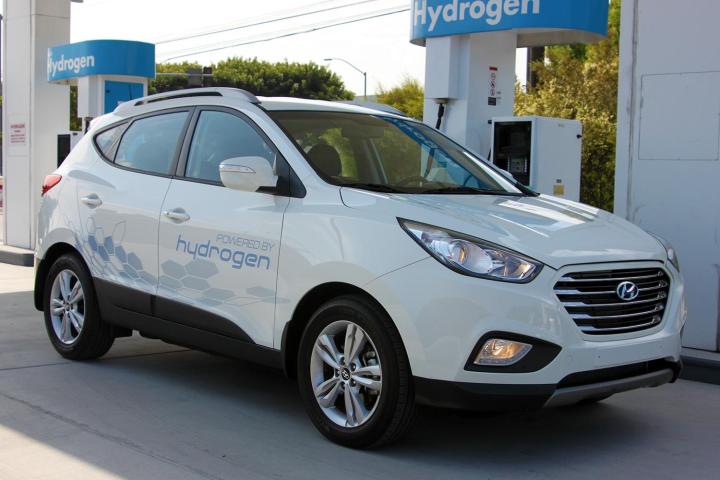
Automotive industry analysts are presently hotly debating what will power cars in the future, be it gasoline, diesel, or electricity. It turns out, though, the answer might just be poo.
So what the heck are we talking about? Well, scientists at University of California Irvine have developed a system for turning sewage into pure hydrogen gas. And the timing couldn’t be better, as Hyundai is set to release its fuel-cell-powered Tucson in California in the next month. In fact, this miracle is taking place just a hop skip and a jump down the road from Hyundai’s United States headquarters in Fountain Valley.
How does poo power work? Well, the basics of it go a little like this: take all of the horrible unmentionable things that people flush down their toilets every day, filter out the iPhones, syringes, socks, lost wedding rings, and most of the water. Then put the rest of the horrid brew into an airless tank, which is appetizingly called a “digester”.
In the digester the “biosolids” are devoured by microbes which release methane and carbon dioxide. Most of the methane is burned to operate the plant. However, some of it is piped off into a “tri-generation” fuel-cell.
This fuel-cell is where the stinky magic happens. The complete details of the tri-generation fuel-cell haven’t been revealed, but the end result is that methane is converted into heat, electricity and hydrogen, as well as, presumably, carbon.
Speaking to the Korea Herald, head scientist Jack Brouwer, described the whole odoriferous process by saying, “It smells like money.” He might just be right. While hydrogen is actually the most common element in the universe, there is still nothing like enough supply if hydrogen fuel-cell vehicles are to replace even a fraction of the world’s cars.
Processes like this will have to be developed to take up the slack. In this case, the use of sewage still involves hydrocarbons. At least the hydrocarbons are not wasted, as they would be if the sewage was simply allowed to decompose.
So while you might literally want to turn up your nose at turning poo into power, you shouldn’t. What you are smelling is the future.
Editors' Recommendations
- Hyundai bets big on hydrogen from sewage, plastic
- All the hydrogen vehicles available for purchase
- Hyundai’s hydrogen fuel cell truck makes hauling freight green and glamorous
- Hydrogen was the fuel of tomorrow, so what happened?
- Vintage car group says EV classics aren’t real classics. Here’s why that’s wrong


